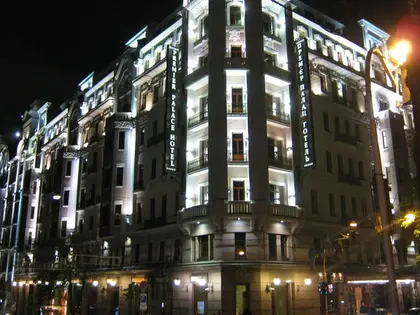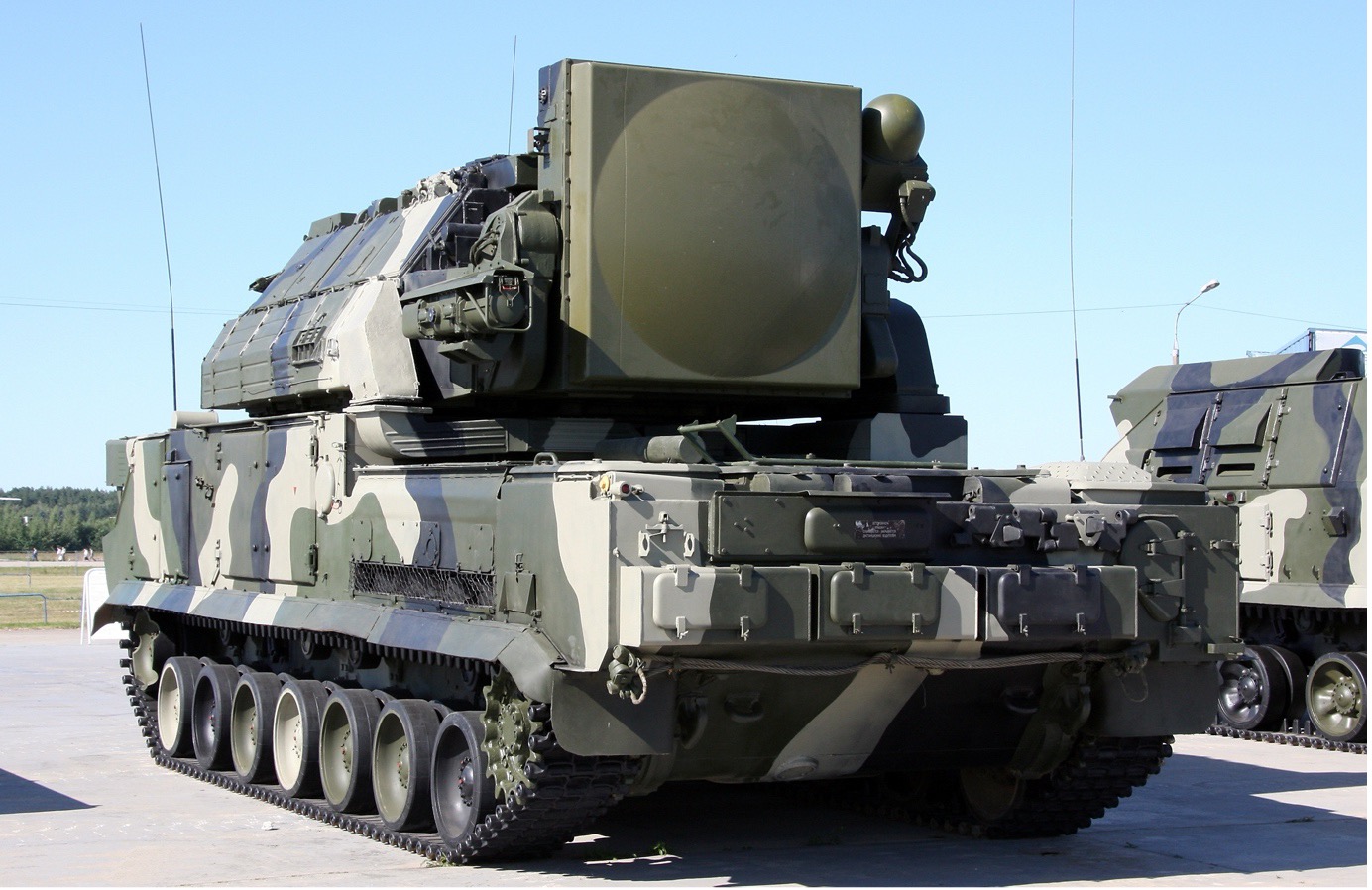Mad Max has left the building.
“Max Beshennyi” – Russian for “Mad Max” – stepped out of the court expecting to be assassinated. That was 15 years ago, when the story of Russian ownership of the poshest hotel in Kyiv and the murder of its former co-owner became breaking news in Ukraine.
JOIN US ON TELEGRAM
Follow our coverage of the war on the @Kyivpost_official.
“Mad Max” was the nickname of Maksim Kurochkin – the founder of the “Russian Club” in Kyiv – a local hangout where Moscow politicians mingled with their Ukrainian allies.
Maksim Kurochkin was also a head of the supervisory board of the Premiere Palace Hotel – one of the oldest and fanciest in town. The others were Russian politician Aleksander Babakov and members of the notorious “Luzhniki” organized crime group in Moscow.
“Mad Max” Kurochkin claimed that the hotel's co-owners owed him $100 million – a debt they had never paid back.
His business partner, Babakov, is the owner of five huge energy companies in Ukraine – regional monopolies in the distribution and transport of electricity – and currently a member of the Russian State Duma. The investigation by the Organized Crime and Corruption Reporting Project revealed his valuable assets and luxurious apartments around the globe.

Alexander Babakov, Wikepedia
Mad Max’s last days in March of 2007 were spectacular. The courtroom was crowded with reporters and a few surreal characters, including one self-proclaimed aristocrat, who called himself a “great prince.”

‘In Its Own Perverted Way, in Its Own Crooked World’ – Ukraine at War Update for Sept. 25
Dressed in a red shirt and a suit, probably drugged and speaking from inside a cage in the corner of a courtroom, “Mad Max” claimed his life was at risk.
Nobody took his words seriously; minutes before, he had called himself Jesus Christ.
The police van meant to transport Kurochkin to his place of his detention was parked three meters from the court’s exit.
A renovation was taking place, and rubbish blocked the way to the vehicle, so Kurochkin had to walk six or seven steps in the open.
There he was shot in the heart and died instantly.
That day, a professional sniper rifle was found on the roof of a nearby apartment block, overlooking the yard.
His killers were never found.

Maksim Kurochkin, a Moscow businessman and reputed gangster, was shot dead by a sniper minutes after a judge turned down his request to be freed on bail at a court hearing on March 27, 2007,when this photograph was taken. (UNIAN/Kyiv Post)
Activists without insignia
Exactly 15 years later, in April 2022, people in camouflage entered the lobby of the Premiere Palace – the same hotel where Mad Max had started his brief and notorious career in Ukraine.
The newcomers were a motley crew, dressed in uniforms of different shapes and colors, without any known insignia.
Instead of guns, however, they brought big sheets of paper on which, as they insisted, the names and portraits of the stakeholders of this luxury hotel were written.
Same hotel, same owners after all these years: VS Energy, Babakov, Luzhniki crime group.

Maksim Kurochkin, shot dead on March 27, 20007, was well-connected. Kurochkin (center) is seen in this photograph during the opening of the the Russian Club in Kyiv ahead of the 2004 presidential elections, as the Russian and Ukrainian presidential chiefs
“We suspect that the revenue from this hotel goes to three people. They are in the Russian Federation and are close to the ‘aggressor,’ Putin,” said one of the activists in camouflage, Vasyl Miahkiy. “There is information, a correspondence from an email, that was given to us, in which we see how the chief accounting officer, the director general, and the lawyer of this establishment discuss these financial transactions,” a man in camouflage says, speaking in front of the cameras.
The wording of his statement, and the style, was far from clear and transparent, as one would expect from such legal action.
These people were neither NABU nor the newly established Bureau for Economic Security, neither police nor SBU.
The ragtag crew of people called themselves a “volunteer battalion” and said they were not planning to raid the hotel or take it over in any other way.
Instead, they claimed to possess the private correspondence of its bosses and owners, which could hardly be obtained without the help of a law enforcement agency.
However, this activism was a prelude to the news leaked to Radio Liberty last week, that the Pechersk District Court of Kyiv had seized the property of Babakov and his partners.
“The property shows signs that it was obtained as a result of committing a crime,” Radio Liberty quotes the original documents.
It appears that a wide group of companies were part of the alleged crime ring. However, the existence of this criminal organization has been common knowledge for decades and there has not been a single attempt to start an official inquiry into the ownership of property acquired “as a result of committing a crime.”
Years ago, a former top officer in the Ukrainian police, Hennadiy Moskal, was quoted by a daily local newspaper, describing the treatment Kurochkin and his notorious business partners got in Ukraine.
“There were two parallel groups in Ministry of Internal Affairs, (now the police HQ) — one wanted to arrest Mad Max, another one was protecting him. One of the top officials received a huge bribe to cover Mad Max,” Moskal explained.
The Russian gangster was using the state security and driving the cortege with governmental privileges until something went wrong.
But it was not until this year that the business of his notorious partners from Moscow was finally sequestered.
A rotten judiciary
Courts in Ukraine have never had a reputation for being independent or transparent. A call from a higher office could decide the fate of any court hearing, making it political from top to bottom.
Kyiv Post spoke to former deputy prosecutor Davit Sakvarelidze in the Kyiv city center to discuss the future of the Premier Palace, now seized and nationalized.
“I think Russians would not be able to buy anything here after the war apart from the black plastic bags,” Sakvarelidze jokes darkly.
“About 70% of what we see here, on Khreschatyk Street, already belongs to the state,” Sakvarelidze says. “I once suggested that we sell it to private investors. I once even suggested that we sell the building of a general prosecutor's office and build the office for this institution elsewhere. Even for the presidential office: I would sell it and make a fancy hotel out of it,” says the former top prosecutor.
At the suggestion that any Ukrainian judge would be swayed by a call directly from the president’s office, Sakvarelidze says: “Sooner or later it will change… You understand, judges here are also a part of the state apparatus… A call like this should not concern a private matter, a business matter. Only a matter of state importance.”
However, one asset in the huge Babakov empire being seized in the last few months is still unclear. There are acres of land right at the Ukrainian-Polish border – a haven for smugglers of all kinds. Babakov’s people allegedly built a private terminal at the border and took over another lucrative smuggling scheme in 2018.
This one piece of the puzzle is still there, intact.
In our future publications, Kyiv Post will try to address this issue.
You can also highlight the text and press Ctrl + Enter






